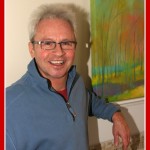If you live in Minnesota, it’s almost impossible to avoid the trial of Amy Senser in the media. She is the wife of a former NFL Viking player and has been charged with several counts stemming from an incident where she exited the freeway and struck a man, Mr. Phanthavong, killing him. He was on the side of the road filling his gas tank. See local coverage in the StarTribune: 149999655.html.
In order to find her guilty, the jury must decided that the government has proved beyond a reasonable doubt that Ms. Senser knew she had struck the man. Her defense is that she thought she hit a highway plastic cone.
To prove their case, the prosecution brought in an expert from the state highway department to demonstrate and testify that in this situation, when Ms. Senser struck the victim, the body would have rolled up over the hood of the vehicle and fallen off to the side–therefore she couldn’t have missed knowing that she struck a person. He also based his opinion on the significant damage done to her vehicle.
So, how does a person become an expert witness? How can they testify?
In Minnesota, the Rules of Evidence, Rule 702, says the judge may allow expert testimony as follows:
“If scientific, technical, or other specialized knowledge will assist the trier of fact to understand the evidence or to determine a fact in issue, a witness qualified as an expert by knowledge, skill, experience, training, or education, may testify thereto in the form of an opinion or otherwise. The opinion must have foundational reliability.”
Before the “expert witness” is allowed to testify in front of the jury, the party offering the evidence must convince the judge the witness qualifies as an expert. The rules go on, in comments, to say: “The qualifications of the expert need not stem from formal training and may include any knowledge, skill, or experience that would provide the background necessary for a meaningful opinion on the subject.”
From my own experience as both a prosecutor and defense lawyer, experts are powerful witnesses–because the are experts. Jurors tend to give a lot of attention and credit to whatever they say. Not only because of their expertise on a subject but also because they are often unbiased, neutral witnesses. It makes their testimony more believable.
I suspect the verdict in the Senser trial will turn on the expert’s testimony about the victim’s body coming up over the hood, across it, and then falling to the side. The defense did not offer an expert to counter the government’s witness.
Do you have any idea what the verdict will be?






